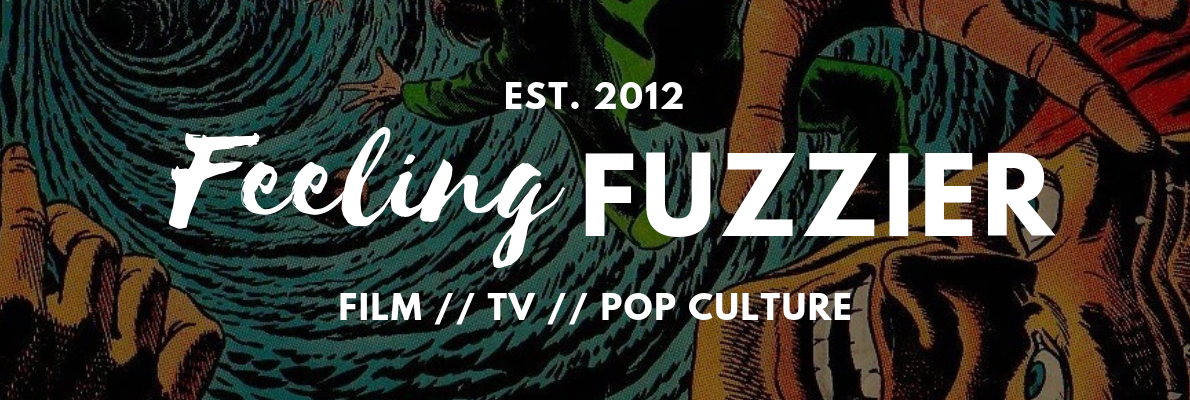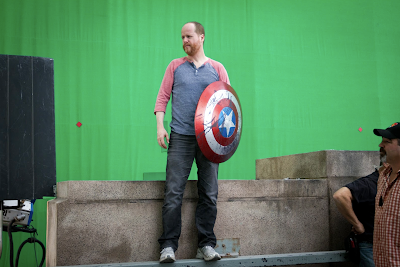Ten years ago, Marvel assembled six of its mightiest heroes for an unprecedented crossover that would redefine what audiences expected from blockbuster cinema. Here's a little look back at the impact and lasting legacy of The Avengers...
Looking back, The Avengers seems quite quaint in hindsight. Six characters in a straightforward team-up story, with a simple three-act structure that sees the team struggle at first but join forces in the end to save the day. It's charming, frothy and unpretentious four-quadrant blockbuster moviemaking that back in 2012 felt like a genuine event – the culmination of something special.Little did we know, that it wasn't the culmination of anything. It was just the beginning of something even bigger.
Ten years later, with all that we know now about Marvel's good fortunes in our minds, it seems silly to think that The Avengers would ever fail. How could it? These characters, these actors, this story? Surely success was set in stone, predestined to always happen just as it did.
But success was never assured. Even after four years and five films (Iron Man and its sequel, The Incredible Hulk, Thor and Captain America: The First Avenger), Marvel was still trying to iron out the kinks when The Avengers dropped in April 2012. There had been big hits (Iron Man sticks out), but also a misfire or two (The Incredible Hulk, Iron Man 2).
The tried-and-true 'formula' that is so often talked about when discussing the Marvel Cinematic Universe was still taking shape, the potent concoction of themes, motifs, characters, ideas and aesthetics still percolating in a big glass vat somewhere in Burbank, California.
Just four years prior to The Avengers, Jon Favreau's first Iron Man film set a high bar – with its sexy, roughish hero in Robert Downey Jnr, guitar-driven soundtrack and rich, high contrast colour palette, it was a film with swagger. It stood in contrast to other superhero fare at the time; DC was preoccupied with being dark and edgy (The Dark Knight), while other Marvel fare outside their interconnected universe blew hot and cold (Ghost Rider, Fantastic Four, Punisher: War Zone).Louis Leterrier's The Incredible Hulk showed that promising productions that Marvel was looking after in-house can soon fly off the rails, without a steady hand on the tiller. Here, it was Leterrier and lead actor Edward Norton coming to blows with Marvel's higher-ups over the final cut.
Other efforts – Kenneth Branagh's Thor, Joe Johnston's Captain America: The First Avenger – showed that there was an appetite for superhero stuff. And the initial breadcrumbs that teased a wider storyline – teasers at the end of the credits, recurring crossover characters like Nick Fury and Agent Coulson – were hoovered up by hungry fans, keen to get a taste of something like their favourite Marvel comicbooks.
So The Avengers needed to shake off the shakiness of those first four years and set a consistent tone going forward. They brought in Joss Whedon as both writer and director, to steward the marquee's biggest film yet – a move that would ultimately prove inspired.
Framed as a controversial figure and a pariah nowadays, it's easy to forget that Whedon was, at the time, seen as a competent and exciting custodian for Marvel's fledging universe.Self-referential dialogue, an irreverent sense of humour and a semi-serious deconstruction of heroism, morality and all that jazz, Whedon's sensibilities paired perfectly with Marvel's world and its characters. In The Avengers, Whedon's dialogue sizzles and bounces around, delivered deftly by the ensemble cast. He gets character too, in a way that Marvel had yet to pin down.
Just as he did on Buffy and Firefly, Whedon was able to distill each element of his ensemble cast into the polished finished product. Nothing is lost when transitioning the likes of Captain America, Thor and Hulk from solo film to shared universe. Thor's fish out of water schtick is still hilarious; Stark's bravado bumps up against Cap's heroism and jingoism, but his quick mind vibes with Banner. The interlocking personalities – how they push and pull one another – quickly becomes the focal point of this film.
This carries forward into the subsequent Marvel films. As soon as this cohort of kooks shared the screen, it becomes clear that what works is the characters and their larger-than-life personalities. Their arcs and idiosyncrasies. Not just banter and quips, but genuine character conflict that is rooted in theme and belief and ideology. The Avengers put the foundations for this in place; Marvel was smart enough to cotton on and keep it going.
Crossovers, of course, weren't invented in 2012. However, Marvel took the idea and made it the bedrock of everything they were hoping to build. The Avengers showed foresight, planning and coordination with interlocking, overlapping intellectual property that didn't just hit the spot there and then – it promised even more down the track. Questions abound after the film, but not because the film was unsatisfying or incomplete – but because it teased future adventures and greater crossovers still to come.
A decade later, and the legacy of The Avengers can be seen in the continued success of Marvel's interlocking franchises. Each subsequent entry providing the next chapter in the story, before culminating in a crossover for the ages. Only a few years after Whedon's first film, Avengers: Infinity War and Avengers: Endgame arrived as a one-two punch that redefined what box-office success looked like, forming the apex of Marvel's meticulous and methodical approach to storytelling.
Marvel learned from its successes and failings, appointing producer Kevin Feige as overseer of all things film. With Feige as the focal point, Marvel quickly got down to businesses and set about pumping out two, three and then four films a year – all with a consistent look, feel and tone that keeps everything consistent and incorruptible.
But the film's legacy can be seen and felt across all of moviemaking. The Avengers literally changed the game, with Hollywood bending over backwards to ape its success and chase something akin to its $1.5 billion box-office, which at the time put it third of all-time, behind only Avatar and Titanic.
Soon, DC and Warner Brothers wanted to get in on the game; only four years after The Avengers, their own attempt at a crossover event – Batman v Superman: Dawn of Justice – hit cinemas, quickly followed by Justice League a year later. Warner Brothers also devised the MonsterVerse, which saw legendary monsters like Godzilla and King Kong crossover, and the Wizarding World, which attempted to make more Harry Potter happen.
Universal had a crack as well, tapping the likes of Tom Cruise, Javier Bardem, Johnny Depp and Russell Crowe for a 'Dark Universe' that would see an interlocking world of gods and monsters. It lasted just one film (2017's The Mummy) and is a fascinating example of promising the world and delivering very little. Sony is still trying to get its shared universe off the ground too, with sad string of Spider-Man spin-offs centred around the likes of Venom, Morbius and Kraven the Hunter.Even the untouchable Star Wars adopted the Marvel formula, as Disney stretched George Lucas' six-film saga into an endless cycle of sequels, spin-offs and origin stories. Now, the future of Star Wars lies in streaming – something it shares with Marvel, which has something like four new series pencilled in every year between now and the end of time.
In my opinion, The Avengers is the nexus point from which Hollywood's current obsession with IP springs forth. The text itself still sparkles – let's quickly mention Alan Silvestri's soaring score, because it deserves a shoutout. But the metatextual stuff that surrounds it is less than stellar, as the industry moved away from original, adult-oriented stories and shuffled towards something supposedly safer, that they could milk year after year. And the less said about Whedon's fall from grace, the better. Talk about hero to zero.
At the end of the day, Marvel's game plan worked. They had a vision, and The Avengers was proof that it could work, time and again. Whether you're a fan or not, the instant impact and lasting legacy of The Avengers is unparalleled.

.png)

.jpeg)




No comments:
Post a Comment